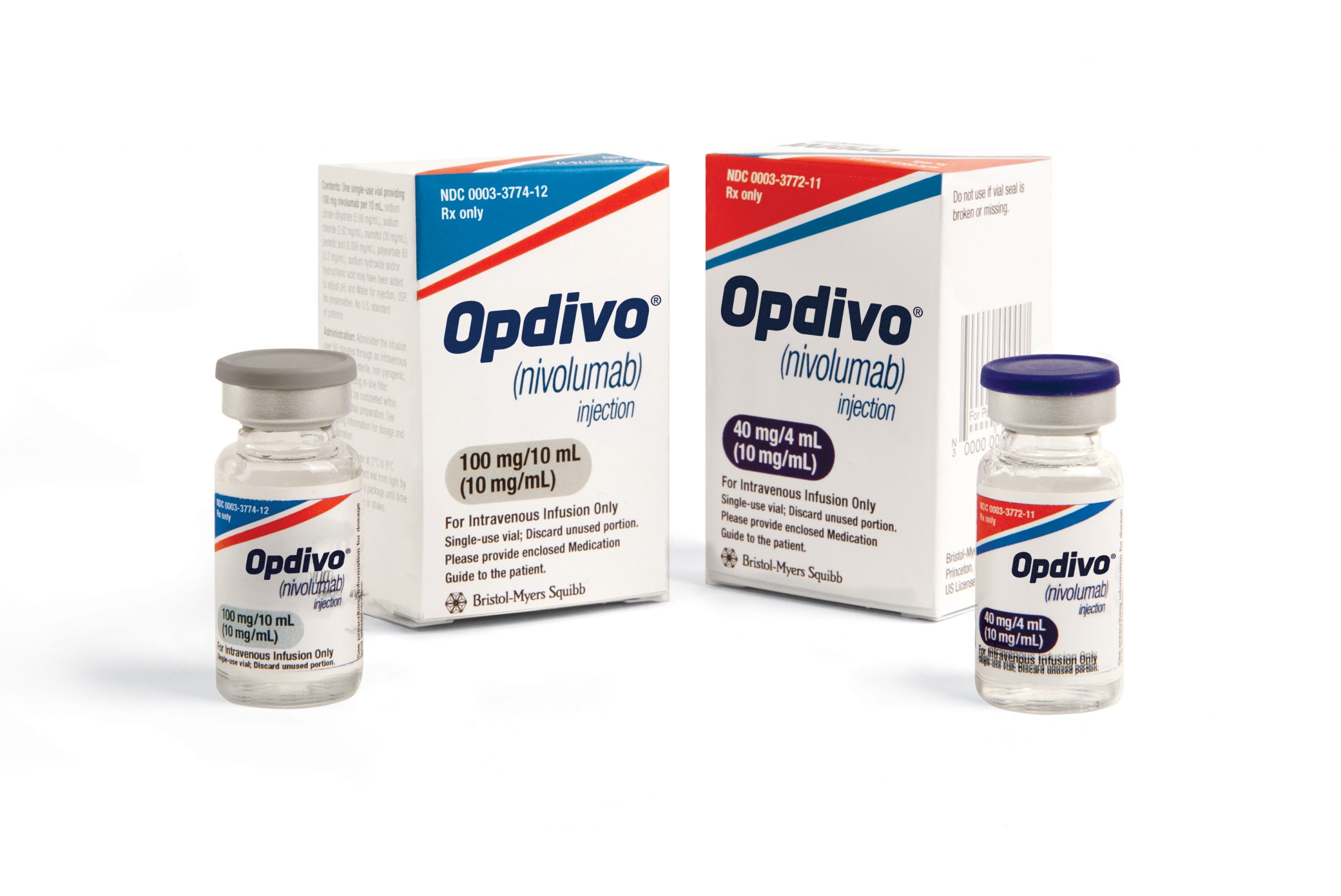BMS gets a much-needed win with Opdivo in first-line lung cancer

Bristol-Myers Squibb’s attempts to challenge Merck & Co’s dominance in previously-untreated non-small cell lung cancer (NSCLC) have disappointed so far, but a new trial of its Opdivo and Yervoy combination looks like its best effort to date.
The results of the CheckMate-9LA trial have shown that a regimen based on PD-1 inhibitor Opdivo (nivolumab) and a low dose of CTLA4 inhibitor Yervoy (ipilimumab) – combined with two cycles of chemotherapy – improved overall survival versus up to four cycles of chemo alone.
The results will be shared with regulatory authorities, according to BMS’ head of oncology development Fouad Namouni, who said the “exciting” results build on earlier trials showing the value of Opdivo plus low-dose Yervoy in first-line melanoma and renal cell carcinoma.
The safety profile of the combination also seemed to be acceptable in the trial, which is an important outcome as Yervoy is notoriously hard-to-tolerate.
Side effects scuppered the earlier CheckMate-012 trial of Opdivo and full-dose Yervoy in first-line NSCLC treatment back in 2017, which stymied BMS’ hopes of an accelerated filing for the regimen and allowed Merck to muscle into the frontline setting with its PD-1 inhibitor Keytruda (pembrolizumab) as a monotherapy and in combination with chemo.
Opdivo also failed in first-line NSCLC on its own, and BMS was also forced to withdraw an FDA filing for the two-drug combination in previously-untreated patients with high tumour mutational burden (TMB) last year.
Meanwhile, in July the CheckMate-227 of Opdivo plus chemo in frontline treatment also failed to show an improvement in survival versus chemo alone.
While one arm of that study tested Opdivo with low-dose Yervoy and found the combination did improve overall survival versus chemo alone, some oncologists questioned whether it made sense to give two immunotherapies when the benefits over Keytruda monotherapy are not clear.
BMS’ troubles have allowed Keytruda to firmly establish itself as the standard of care in the highly lucrative first-line lung cancer indication, and it’s not yet clear whether the addition of chemo to the Opdivo/Yervoy regimen in CheckMate-9LA provides a compelling enough increase in efficacy to unlock the first-line market.
That will likely depend on the size of the improvement in overall survival versus Keytruda plus chemo, the tolerability of the triple regimen and its cost.












